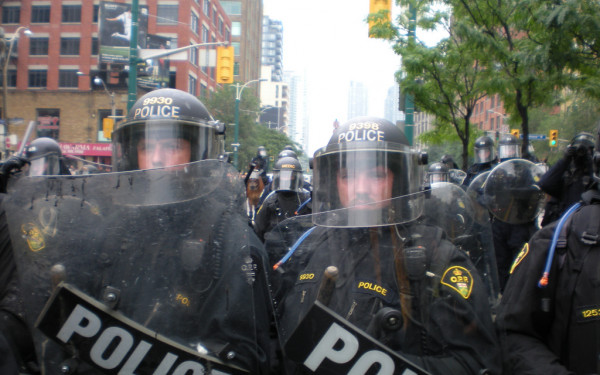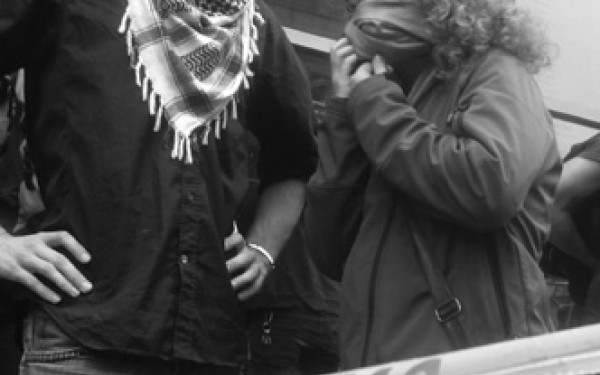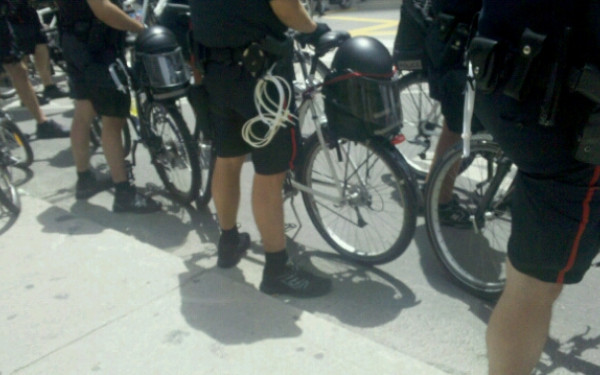...And Justice for Some
Eleven G20 Arrestees See Charges Dropped, Six Jailed
The court case of 17 alleged conspirators involved in Toronto’s G20 protests ended Nov. 22, with six being found guilty and 11 walking free.
Two of the 17 are organizers from the Convergences de luttes anti-capitalistes. Patrick Cadorette, one of the CLAC organizers, was the last to see his charges dropped.
Cadorette had been accused of three counts of conspiracy, including mischief resulting in damages of over $5,000, conspiracy to obstruct police, and conspiracy to assault police officers.
“I got arrested because I took part in a few meetings to coordinate the street protest between different cities,” said Cadorette. “CLAC was mobilizing quite a few hundred people, so it was important for us to know what others were organizing.”
One of the protests, called Get off the Fence, was organized by a coalition called the Southern Ontario Anarchist Resistance. According to Cadorette, some of SOAR’s meetings had been infiltrated by two undercover police officers.
“I was just sort of included in this group of people who were, according to the cops, conspiring,” he said. “The way we see it is basically the opposite. We actually wanted to make it safer for everyone who was going to be at the street protests.”
The G20, a meeting of the leaders of 20 of the largest economies in the world, had amassed a wide array of opposition during its edition in Toronto, which was held in June 2010. Over 900 people were arrested, making it the largest mass arrest in Canadian history.
The arrests were also the result of what was revealed to be the largest police spy operation in Canadian history, which the CBC reported, had involved over 500 people at points. Cadorette feels that he and the others involved in the case were wrongfully accused.
“The police invested so much money and resources into invading these groups that they almost had to charge people, even though they have pretty flimsy evidence,” said Cadorette.
But the case could have had a far worse outcome for the 17. They had the help of a plea bargain that allowed 11 of them to have their charges dropped.
“One reason we decided to take the deal was that, in any event, there’s no justice to be found in the system,” said Cadorette.
“We’ve been infiltrated, and it’s all part of a strategy by the state to criminalize the organization that was made against G20. We’re activists, we’re organizers, and we’re being criminalized for that. We didn’t expect any victory to come of the trial.”
“The idea of taking a deal is to make it go away, to get it over with as soon as possible, so that at least some of us can go back to organizing as soon as possible,” he added.
“In the best-case scenario, a trial wouldn’t have started until the end of 2012. That’s a lot of time to be out of what we want to do, which is organizing, and that’s a lot of resources that are put into defence.”
And, while six of the defendants did plead guilty, none of them were pleading guilty for conspiracy.
“What’s important to say is that they pleaded guilty to a lesser charge, which was counseling to commit mischief, not conspiracy,” said Cadorette. “Nobody was charged with conspiracy.”
The six who pleaded guilty are facing jail sentences ranging in length from three months to 14 months.

_900_675_90.jpg)



